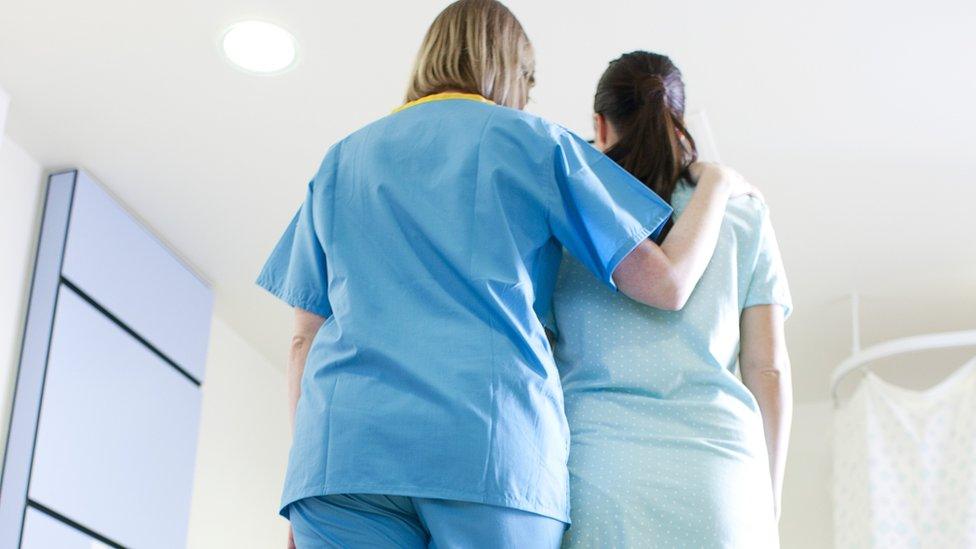Sarah Ewart 'devastated' by Court of Appeal's abortion ruling
- Published
Sarah Ewart travelled to England to pay for an abortion in 2013
A woman whose experience of abortion placed the issue back in the courts, has said she is "devastated" by the Court of Appeal's most recent ruling.
In 2013, Sarah Ewart travelled to England for a termination after doctors said her unborn child had no chance of survival outside the womb.
Such a diagnosis, known as fatal foetal abnormality, is not grounds for a legal abortion in Northern Ireland.
Northern Ireland's abortion law is much stricter than the rest of the UK.
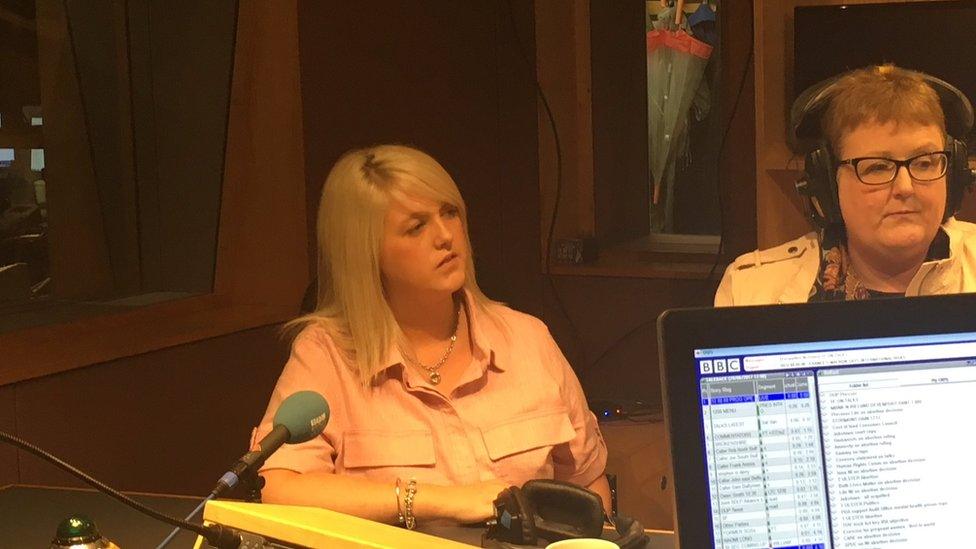
Sarah Ewart and her mother Jane Christie in the BBC Talkback studio
In 2015, the High Court ruled the law breached the European Convention on Human Rights (ECHR) by not allowing abortion in cases of fatal foetal abnormality or rape.
The justice department and the Northern Ireland attorney general challenged the ruling.
Speaking to BBC News NI's Talkback programme, Ms Ewart said the ruling was "totally devastating" but she would not give up.
She was, however, encouraged by the court inviting legal submissions for the case to go to the Supreme Court.
Ms Ewart's mother, Jane Christie, echoed her daughter's sentiments.
"We didn't see this coming. We have always been very definite in what we're about. This would be for women in our own circumstances, women like Sarah - a medical termination.
"We can't get our heads around it," she said.
'Women can't pause their pregnancy'
The court ruled abortion law change was a matter for Stormont, however, Mrs Christie questioned when this would happen, considering the current Stormont stalemate.
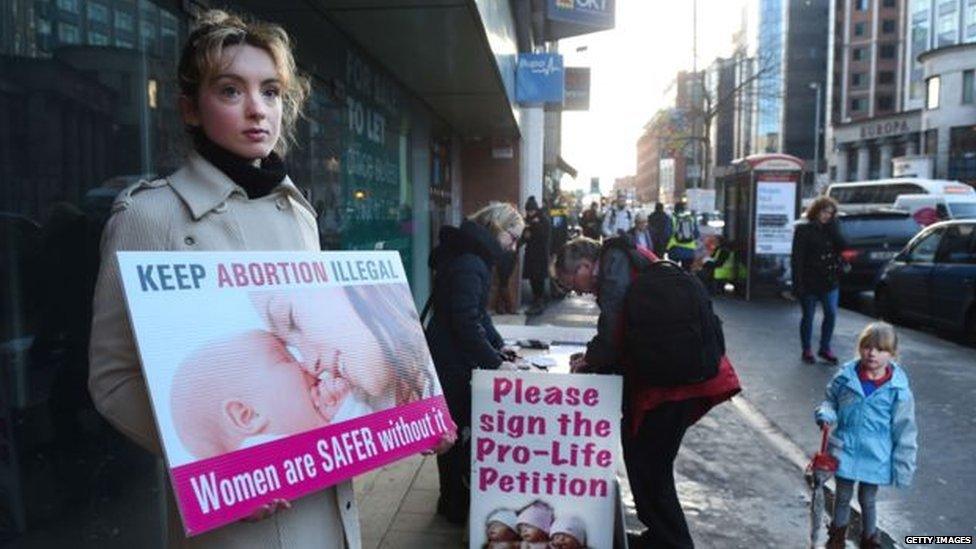
The law on abortion in NI has been the subject of protests by different groups
She said: "The way things are looking, I don't see how they can do this. How can they make decisions when they aren't there?
"Women can't pause their pregnancy while they're looking for this help.
"Hopefully we'll have Stormont up and running again - the support is there and there's a very small amount of people who don't want this change to happen".
Ms Ewart added: "Women are still going and getting in touch with us and I don't want this to happen again.
"Hopefully Stormont will pull through."
Also on Thursday, the chancellor announced that women from Northern Ireland will be able to get abortions on the NHS for free in England.
Ms Ewart welcomed the move but said it was unfortunate that women from Northern Ireland found themselves in this position in the first place.
She said it was just a pity that women could not be treated closer to home.
"It is a good thing that we are now going to get {access to abortion} in the hospitals across the water, instead of a {private abortion} clinic," she said.
"But, at the same time, if it's ok for us to go over there and have it on the NHS, then, really, it should be OK for us to have it here with our own medics in our own hospitals."
Ms Ewart told the BBC she paid £1,350 for her abortion in England in 2013, but when flights, accommodation and other travel costs were added, the whole procedure cost her a total of £2,100.
She acknowledged that not all women from Northern Ireland could afford to travel for an abortion.
"I'm extremely lucky that I have the family and friends around me who were able to support me to go away, not everybody has the option."

Sarah's story
Just a few weeks after Ms Ewart's wedding she found out she was pregnant - it was planned and she was delighted.
Speaking to BBC's Victoria Derbyshire programme, before Thursday's judgement, she explained how she found out her baby had a fatal foetal abnormality.
"People had talked about the 3D scans so we decided to get one privately," she said.
"The stenographer had put the baby on the screen and was telling us, "There's the legs, oh, you're having a wee girl".
"She went up the body and when she got to the baby's head there was nothing from above the baby's eyes - there was no skull or brain formation".
Ms Ewart's baby had Anencephaly. It occurs in about six of every 10,000 births. There is no treatment for it.
"The baby wasn't going to survive, the minute the umbilical cord was cut, the baby would have passed away.
"When I realised that, I felt I couldn't continue on for nine months with people asking me when I was due and about my pregnancy - to not have a baby at the end of it. I felt I couldn't go through with it."
She told doctors that they wanted a "medical termination" .
"We were shocked. They said: 'Sorry with the law here we can't help you - you would have to go across the water'".
At 21 weeks pregnant, Ms Ewart travelled to London to have her abortion which she described as an "awful experience".
"I should have been at home with my family and friends around me, supporting me," she said.
"Politicians failed to help women like me and me so we are hoping we will get the help through the court".

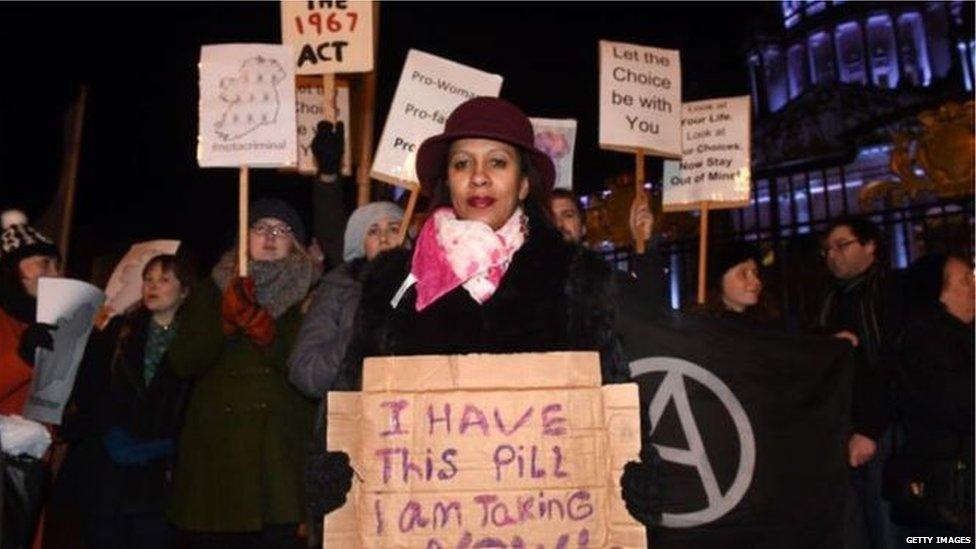
Abortion is only legal in Northern Ireland under limited circumstances
Unlike the rest of the UK, abortion is only permitted in Northern Ireland if a woman's life is at risk or there is a permanent or serious risk to her mental or physical health.
It is unlawful to perform a termination of pregnancy, under section 58 of the Offences against the Person Act 1861, unless on these grounds.
The punishment for breaking the law is life imprisonment.
- Published29 June 2017
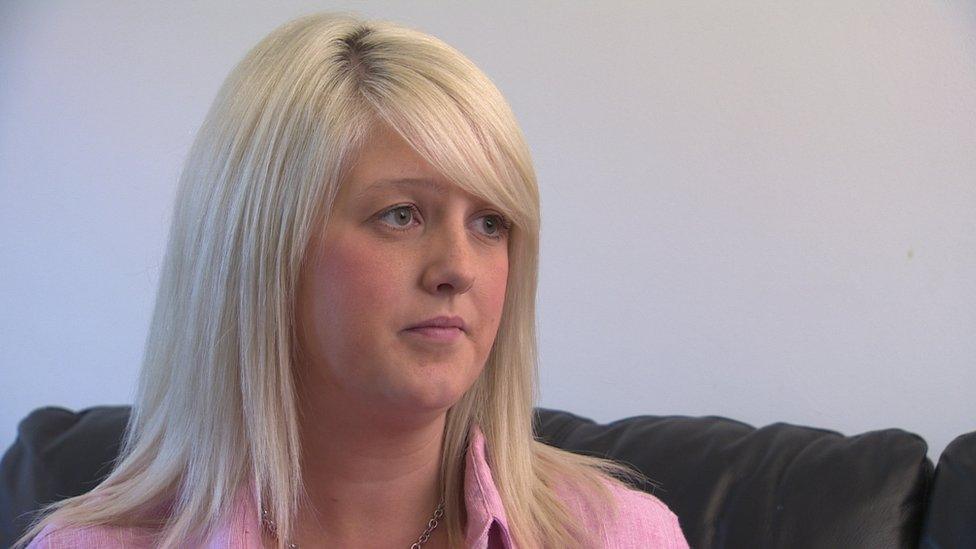
- Published22 June 2016
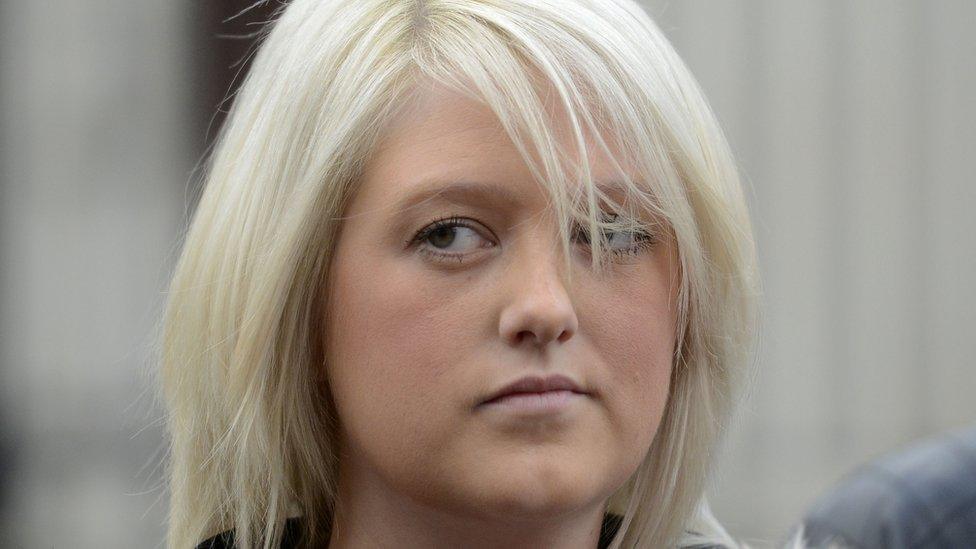
- Published9 October 2013
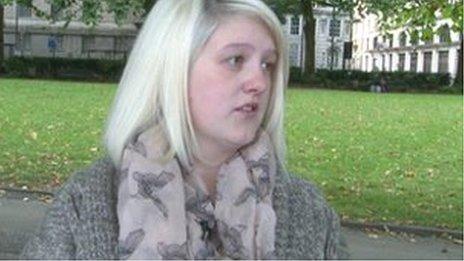
- Published14 June 2017
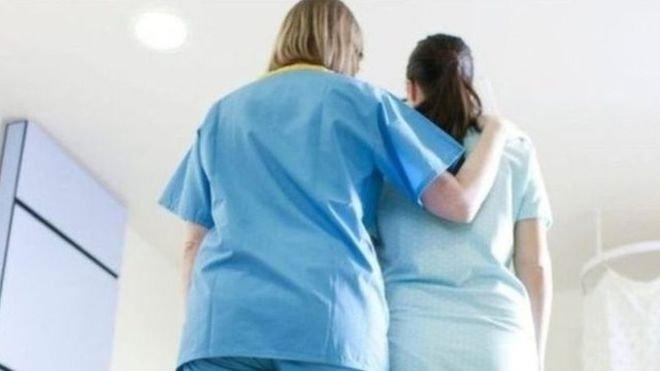
- Published8 April 2016
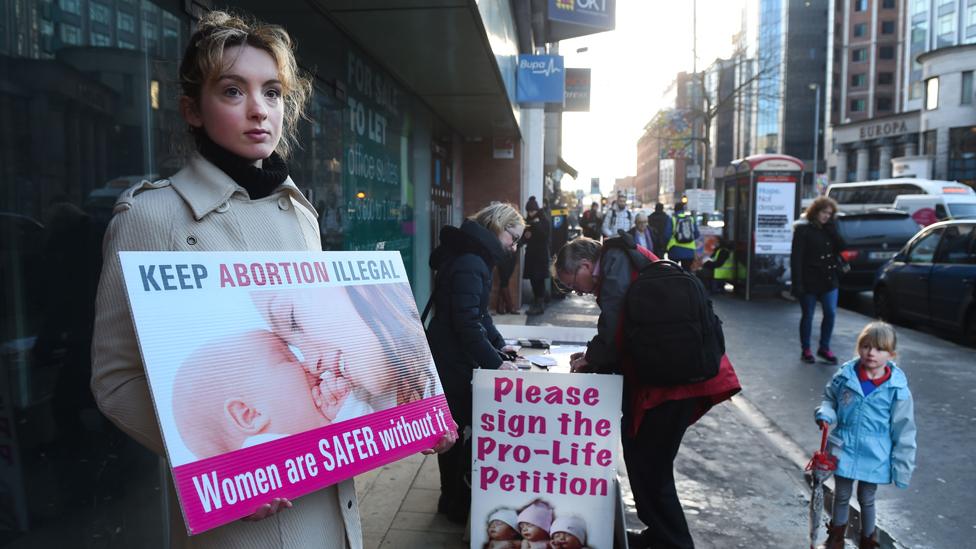
- Published30 November 2015
